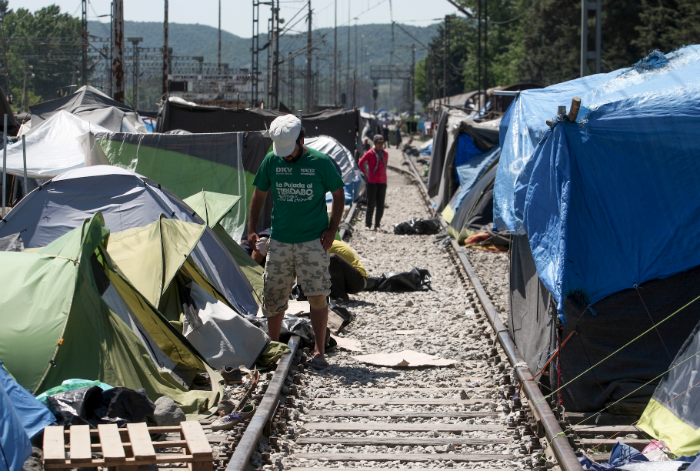Migrants are people, too
Phil Palmer ponders whether alternative language should be used in the reporting of people on the move

Most BBC stories covering the movement of people from North Africa across the Mediterranean to Europe, or on across Europe towards the UK, carry the following explanation:
The BBC uses the term migrant to refer to all people on the move who have yet to complete the legal process of claiming asylum. This group includes people fleeing war-torn countries such as Syria, who are likely to be granted refugee status, as well as people who are seeking jobs and better lives, who governments are likely to rule are economic migrants.
I can see why they do this. One alternative term is “immigrant” which has these days seems to carry connotations of people who are up to no good in one way or another. “Refugee” is factually incorrect, as not everyone travelling to this country meets that definition.
But I wonder if there is another alternative that could be used? “People”. So the recent BBC headline of “Shipwrecks kill up to 700 migrants” becomes “Shipwrecks kill up to 700 people.” Somehow the latter hits home more – migrants cease to be a different class who we can perhaps mentally worry about less, and we realise they are just like us.
I’m not just getting at the BBC here, in fact they have done more than many news outlets in explaining their reasoning for their choice of words. Much of our media is guilty, consciously or otherwise, of dehumanising people in their reporting. One example that hit home particularly forcefully to me was the story a couple of weeks ago of the NHS being overrun by “migrant women having babies.” Well those babies would include both of my children – they are people, just like you or I – we are all born somewhere.
The Bible is full of stories of people on the move. The Israelite people escaping from slavery into Egypt, who were not welcomed into the land for which they headed, and had to fight to live there. Centuries later a foreign invading army carried many of them off into exile in a foreign land, and it was 70 years before some of them could return to their home. Jesus was a migrant – a refugee – in Egypt when just a baby, escaping the tyrant Herod who was trying to take his life. Freedom of movement is not a new issue.
Having lived in the South East of England for 16 years I understand some of the concerns about overcrowding and pressure on infrastructure. I am less convinced that the solution is to limit numbers coming in to our country – if you took all the non-British people out of the NHS I’m not sure there would be a health service in the London and the Home Counties.
But others will disagree with me on that. The important thing is that, as Christians, we make a decision (on the EU referendum) based on the facts, and based on affirming the humanity of each person. Whatever the colour of our skin, wherever we chanced to be born, whatever our life circumstances, whether we live in this country already or are seeking to move here, we are each made in the image of God, loved by him, and worthy therefore of complete love and respect. We are people!
Picture: European Union
Phil Palmer is minister of Beverley Baptist Church in Hull. This article originally appeared on his blog and is republished with permission. For more of Phil's writing visit: https://philinthemiddle.wordpress.com/
Baptist Times, 07/06/2016